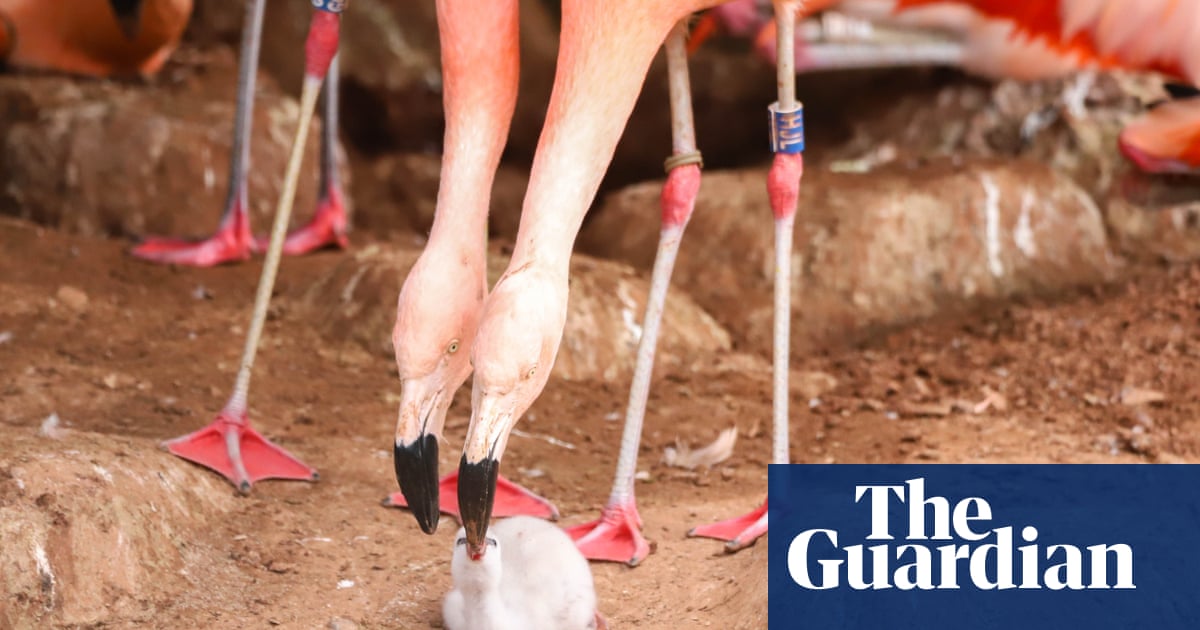
A pair of same-sex flamingos has successfully hatched an egg at a zoo in Devon, staff say.
The chick is one of several new additions from Chilean flamingo couples at Paignton zoo, marking the zoo’s first successful hatching of the species since 2018.
The bird curator, Pete Smallbones, said he was not entirely sure how the same-sex pair, Curtis and Arthur, acquired the chick but this was a “known phenomenon in Chilean flamingos as well as other bird flocks”.
Smallbones said: “The most likely scenario is that the egg was abandoned by another couple, so this pair have adopted it. We have had several all-male pairings over the years, but this is the first season that an egg has been successfully hatched by a same-sex pair.”
“The bird department aren’t surprised that the same-sex pair have successfully hatched an egg and are now rearing a chick, but for other departments it has been a bit of a surprise,” Smallbones added.
The curator said Curtis and Arthur are a new couple at the lagoon and are raising the chick together.
“[Same sex-coupling] has been documented in species ranging from adelie penguins to zebra finches.
“We are pleased at the success of this year’s breeding programme so far. It’s a testament to the skill and hard work put in by the bird team and we are hopeful that we may see more eggs hatch over the coming days and weeks,” the curator said.
The other flamingo couples, who were named by the public earlier this year, include Florence and Flame, Frenchie and Del, and Flossie and Lando. The flamingos form part of the zoo’s initiative, Love Lagoon, a tribute to ITV’s reality series Love Island.
The zoo said naming the flamingos would help with documenting the couples as they paired up during the summer, with visitors able to get regular updates via the zoo’s social media.
Chilean flamingos are native to South America and can be found in shallow lakes in various countries, including Chile and Argentina. According to the curator, the species are declining in number due to factors including tourism, habitat loss and egg-harvesting.
Flamingo eggs hatch after about 28 days when they are incubated on mud pile nests by both parents. The chicks initially appear different to their adult counterparts, covered in grey and downy feathers.
“The whole zoo is pleased to have flamingo chicks back on the lagoon. They can’t fail to brighten up your day when you catch a glimpse of them,” Smallbones said.
Source: theguardian.com


















